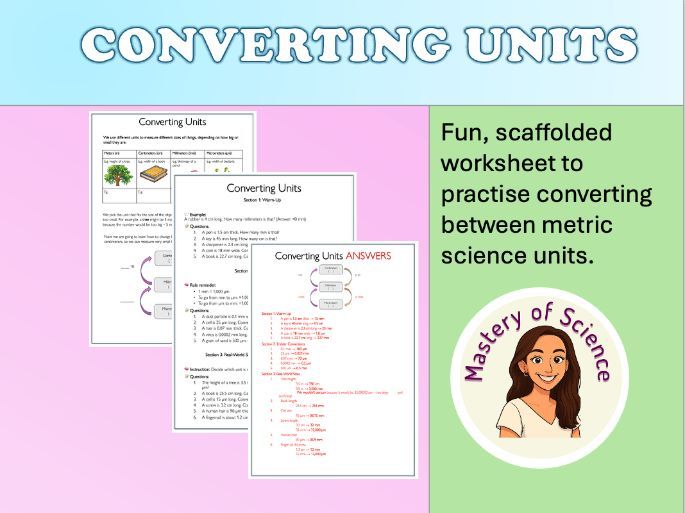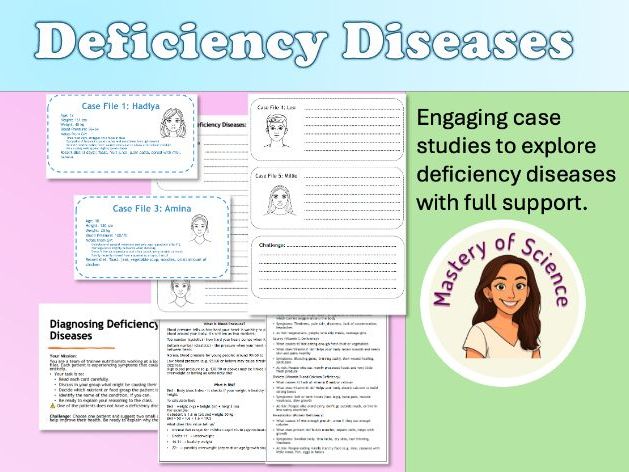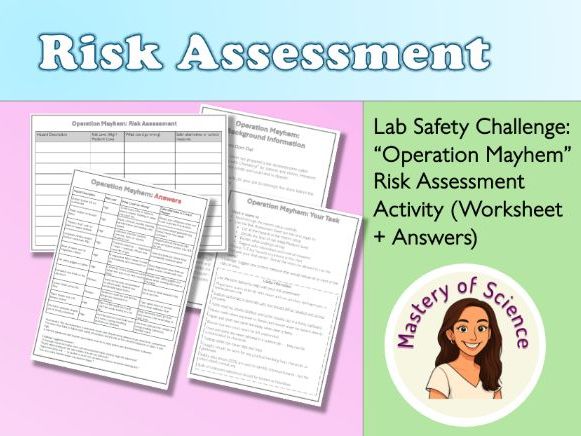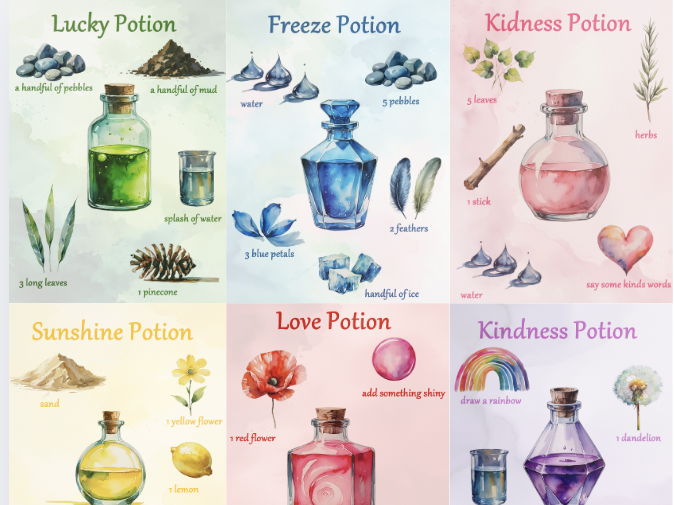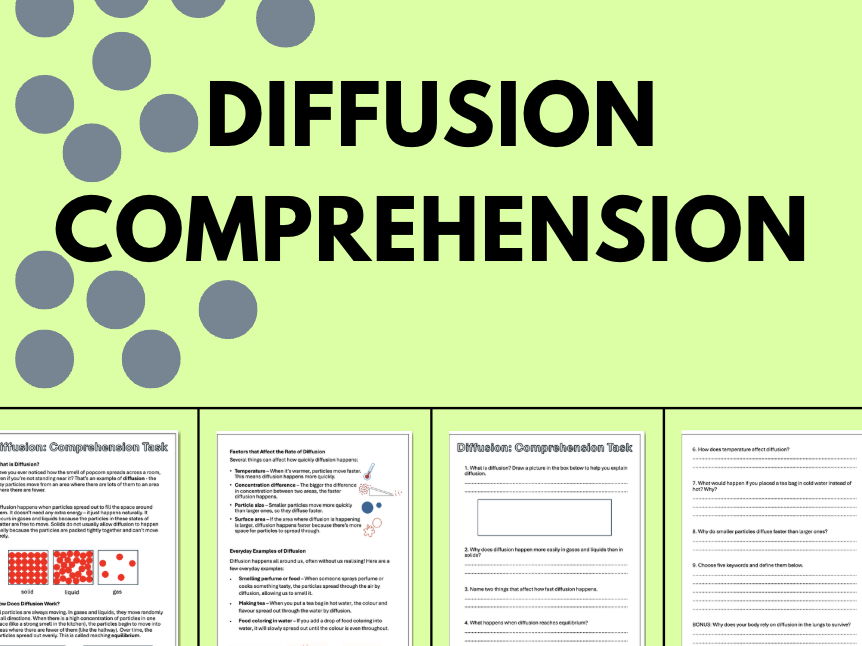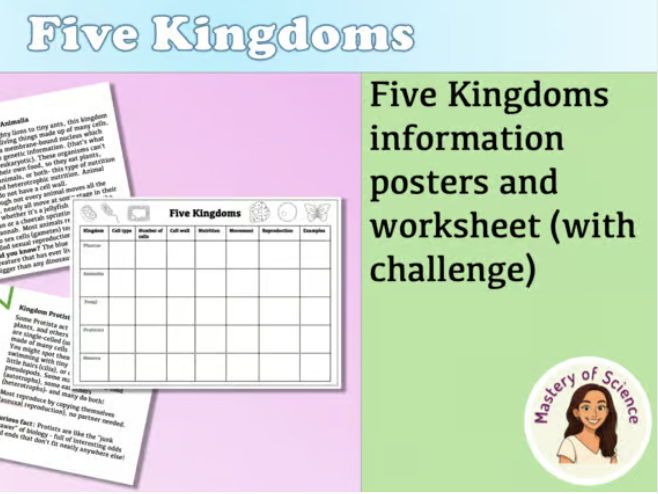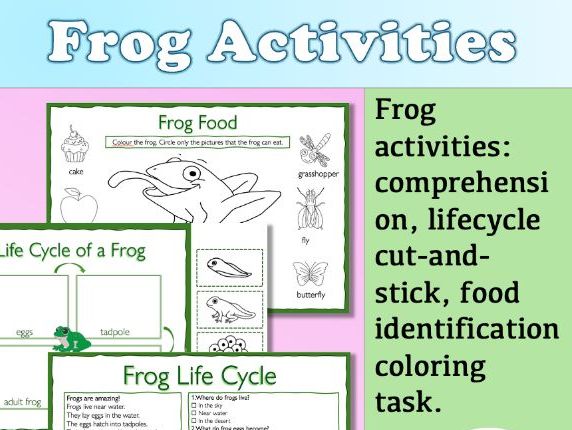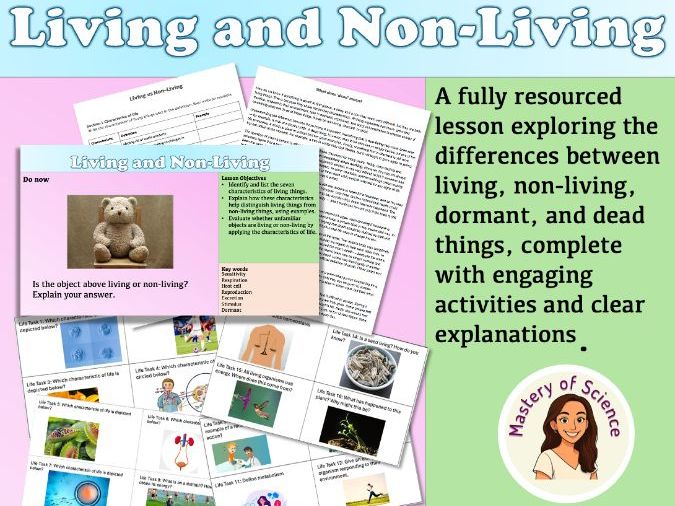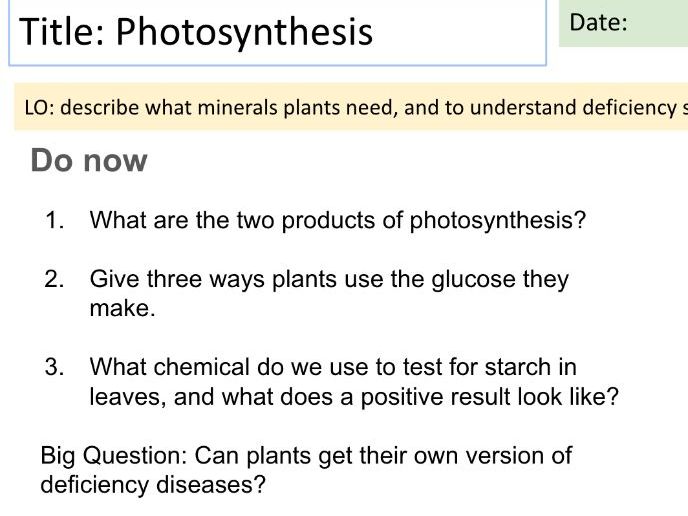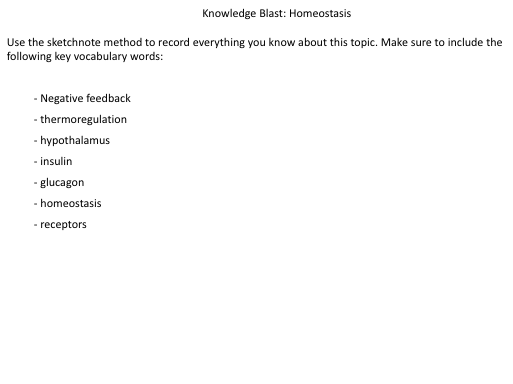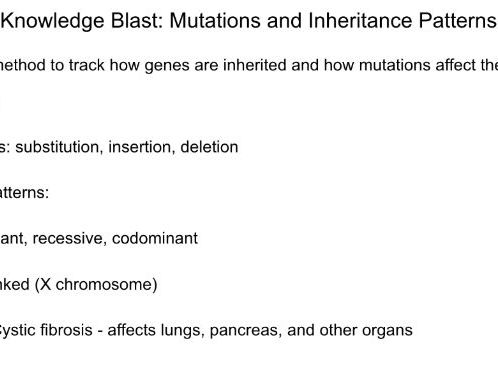58Uploads
42k+Views
28k+Downloads
All resources

FREE Metric Units Conversion Worksheet: cm, mm, and Micrometres (µm)
This engaging and EAL-friendly worksheet helps students practise converting between centimeters (cm), millimeters (mm), and micrometers (µm) using real-life contexts like trees, pencils, and cells. The activity is broken into three differentiated sections that build in difficulty, from basic conversions to mixed-unit reasoning tasks. Perfect for KS3 and GCSE Science, with clear explanations, challenge boxes, and an extension task included. Answer key provided!
Ideal for:
Metric units practice
Biology (cell size and magnification)
EAL support
Differentiated lessons
Homework or revision

Deficiency Disease Task Cards & Case Study Activity
Lesson on deficiency diseases for secondary science.
The activity allows students to work independently or in groups to diagnose fictional patients using symptoms, diet notes, and vital signs.
Perfect for lessons where textbooks or Internet access are not available, this download includes:
5 detailed patient case files
Student-friendly information sheets on blood pressure, bmi, and key deficiency diseases
Clear student instructions and extension tasks
Printable task cards, answer sheets, and full teacher answer key
Diseases covered are: anemia, scurvy, kwashiorkor, rickets, and obesity (red herring disease).
No prior knowledge or external resources needed - just print and go!

Lab Safety Challenge: Risk Assessment Activity (Worksheet + Answers)
Make your lab safety lessons unforgettable with this high-engagement challenge!
âOperation Mayhemâ that introduces students to key safety concepts while developing real-world skills in writing risk assessments.
What is included:
Printable student worksheet with a chaotic fictional lab scenario
Clear instructions for identifying hazards, ranking risks, and suggesting safety measures
A concise, easy-to-mark answer sheet for quick assessment
Built-in extension challenge to stretch critical thinking

Mud Kitchen Recipe Cards: Potions Play-based learning
Outdoor Potion Play!
Encourage your little explorers to dive into the magic of nature with pretend potions! From a Kindness Potion to a Freeze Potion. Outdoor potion-making is a fun, creative way to engage with the natural world.
Potion play encourages observation, mixing materials, and using scientific language like ingredients and reactions.
Perfect for forest school, backyard fun, or weekend nature walks!

Diffusion comprehension: reading and questions. Challenge included
Diffusion Made Simple: Comprehension & Visual Learning Worksheet with Challenge.
Answers included.

Five Kingdoms: Posters and worksheet
Five Kingdom posters with a worksheet where students have to summarise the information given. A challenge is provided on the back of the worksheet if studentâs finish early.
Answers included.

Classification: Five Kingdoms
A fully resourced lesson on the Five Kingdoms.
Includes: carousel task with worksheet and posters, review task, challenge questions, oracy task. All answers included.

Frog activities: comprehension, lifecycle cut-and-stick, food identification coloring task.
Frog activities: comprehension, lifecycle cut-and-stick, food identification coloring task.

End-of-year science reflection: celebrate growth, learning, and challenges overcome.
End-of-year science reflection: celebrate growth, learning, and challenges overcome.

Cells Lesson Pack | Activities for Plant & Animal Cell Structures
Lesson Overview:
⢠Begins with an open-ended Do Now that prompts students to think critically about how a brick wall might relate to cells, activating prior knowledge and curiosity.
⢠Introduces the types of cells and their key structures.
⢠Includes a listening-to-draw activity where students visualize and sketch a cell based on a verbal description.
⢠Main task: a hands-on cut-and-stick flip-flap activity where students:
o Colour and label organelles on diagrams of plant and animal cells
o Match flip-flaps to structures
o Write organelle functions underneath using reference materials placed around the room (provided in this resource)
o Complete a challenge question encouraging higher-order thinking about what happens when organelles malfunction, including real-life biological examples

Tutor Time/ Form Time Talk
Monday Morning Questions - 50 Conversation Starters for Tutor Time & Oracy Development
Start the week with curiosity, creativity, and conversation using Monday Morning Questions - a fun and thought-provoking tutor time activity designed to get students talking, thinking, and connecting.
This resource includes 50 open-ended question cards that spark meaningful discussions and promote oracy skills. Questions range from light-hearted to reflective, such as:
⢠If you could design a new app, what would it do?
⢠Whatâs your favourite smell and why?
⢠Whatâs an unwritten rule in school that everyone knows anyway?
Simply print, cut, and laminate, then let students choose a card or two at random to discuss in small groups or as a class. Ideal for Monday mornings, but just as effective for any day when you want to build confidence, encourage listening, and strengthen classroom relationships.
Whatâs Included:
⢠50 unique question cards (open-ended, engaging, student-friendly)
⢠Printable format - perfect for laminating and reusing all year long
⢠Great for KS3, KS4, or advisory/tutor time in secondary settings

Living and Non-Living Things
Fully Resourced Lesson: Living and Non-Living Things
This engaging lesson is designed to help students explore the difference between living and non-living things. It begins by prompting students to think about what defines a living organism and what characteristics are used to classify something as non-living.
The lesson then introduces the MRS GREN acronym to help students understand the seven life processes that define living things. A differentiated worksheet follows, allowing all learners to demonstrate their understanding at an appropriate level.
An extension task is included, which encourages students to consider the concept of dormancy and its implications for how we define life.
Next, students explore the idea of what it means to be dead, using a focused worksheet and guided questions to deepen their understanding.
Students then participate in an interactive activity using task cards placed around the room, which they move between and respond to, reinforcing their learning through movement and collaboration.
The lesson concludes with a plenary activity to assess understanding and consolidate key concepts.

Plant hormones A-level (International award Edexcel)
Full booklet (21 pages) covering the following topics:
8.11 understand how phytochrome, auxin (IAA) and gibberellins bring about responses in plants, including their effects on transcription
8.12 CORE PRACTICAL 18 Investigate the production of amylase in germinating cereal grains.

Mineral deficiency in plants
This lesson includes:
Do Now activity, featuring an engaging Big Question.
Main Task, where students read and respond to a letter about plant mineral deficiencies.
Plenary, a True or False quiz to test their understanding.

GCSE Biology Revision: Knowledge Blast tasks
This is a revision resource designed for students completing their AQA GCSE (this would also be useful for Edexcel Biology).
Students begin the lesson with an independent âKnowledge Blastâ activity, followed by structured bookwork to reinforce their understanding. The session concludes with a relevant past paper question to apply their knowledge.
This resource includes 20 keyword prompts covering a range of topics.
Please note: exam questions are not included in this resource.

Revision: Knowledge blast prompts (International AS Edexcel Biology)
This is a revision resource designed for the Edexcel International A-Level Biology (AS) course.
Students begin the lesson with an independent âKnowledge Blastâ activity, followed by structured bookwork to reinforce their understanding. The session concludes with a relevant past paper question to apply their knowledge.
This resource includes 16 keyword prompts covering a range of topics.
Please note: exam questions are not included in this resource.

Year 7 science introduction lessons
Three introduction lessons for year 7 students.
Lesson 1: Lab safety and rules. Lquid nitrogen demo to demonstrate safety rules
Lesson 2: Hazard symbols
Lesson 3: Using a bunsen burner

IGCSE Edexcel Biology Revision booklet: Ecology
A revision booklet which has questions on the main areas of the ecology topic, including definitions, pyramid of biomass/number, food chains,greenhouse effect, yoghurt production).
Also contains exam questions (with the mark scheme at the end of the document) based on this topic.
Booklet is 30 pages long.

Human impact: Does carbon dioxide affect the pH of seawater and the strength of shells?
This was a series of 5 lessons in the âOur Worldâ topic. Students had covered the carbon cycle, and factors that increase the levels of carbon dioxide.
We then worked through the attached PowerPoint and booklet to investigate how pH can affect the strength of shells.
Within the booklet there are detailed instructions on three different practicals.
This required very little input throughout the lessons as the students worked through the booklets independently.

KS1/ Year 2 Science Activity Pack
I planned a science morning at my school for the year 2 students. There were three different activities and the students rotated to different classes.
Attached is a PowerPoint and a booklet that students can work their way through.

